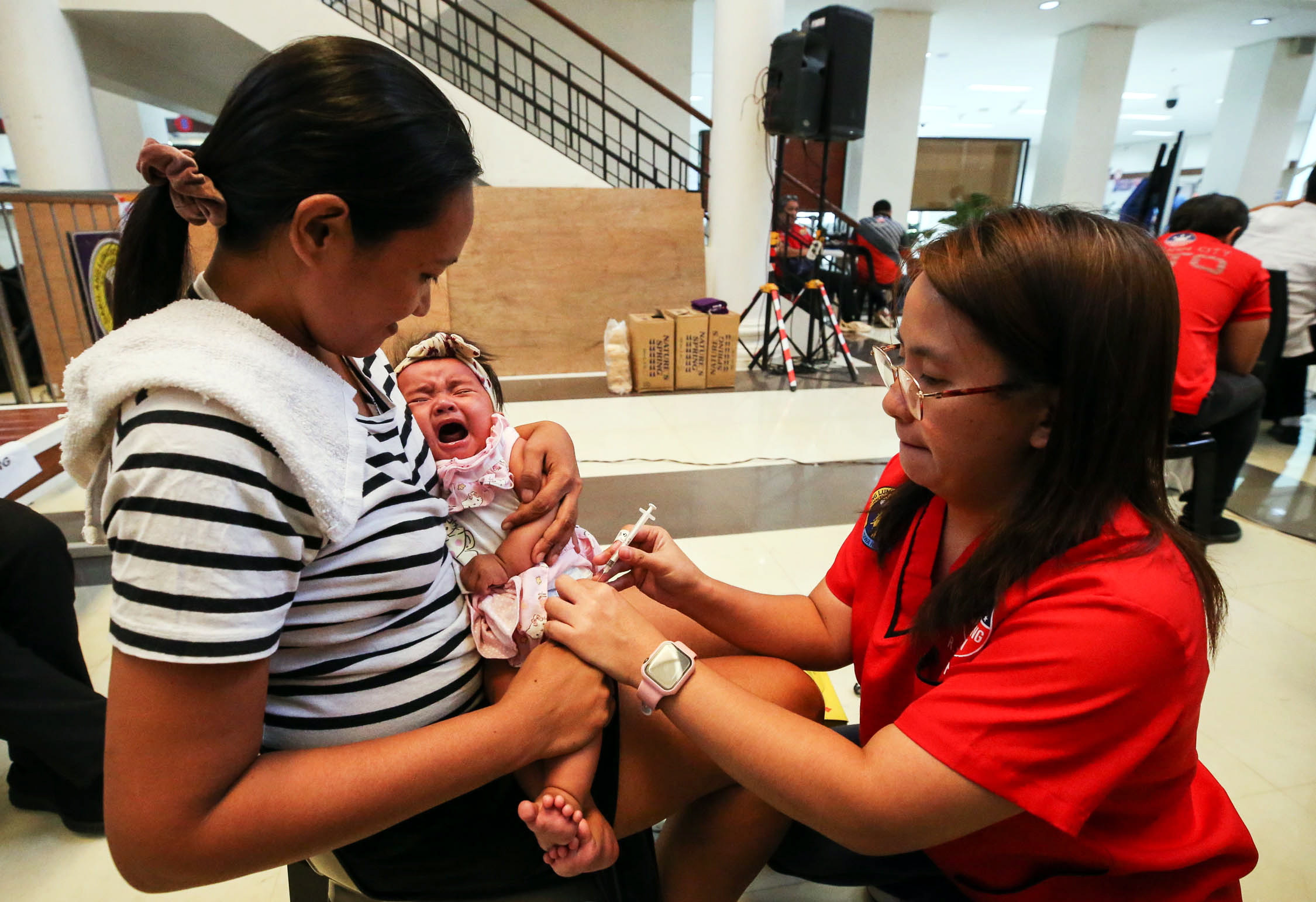
URGENTLY NEEDED The health department is still waiting for the delivery of 3 million pentavalent (5-in-1) vaccine doses it procured through the United Nations International Children’s Fund. Aside from pertussis, the vaccines protect against diphtheria, tetanus, hepatitis B and Haemophilus influenzae type B. LYN RILLON
MANILA, Philippines — The Department of Health (DOH) reported on Wednesday that pertussis cases in the country continue to rise, deflating hopes that the outbreak may have started to plateau.
“The effects of increasing immunization efforts to stem the outbreak may not be seen in the data until four to six weeks after they started,” it said in a statement. The DOH reported that as of March 23, at least 862 cases of pertussis have been recorded since the start of the year—a staggering 3,000-percent increase from last year—with 49 deaths.
The five regions reporting the highest number of cases were Mimaropa (187), National Capital Region (158), Central Luzon (132), Central Visayas (121) and Western Visayas (72).
READ: DOH chief: Pertussis outbreak now under control, but vaccination continues
READ: Whooping cough: It’s not just a cough
Unvaccinated
The DOH noted that of the infected patients, 79 percent were children younger than 5 years old. Six out of 10 of these children were either unvaccinated or unfamiliar with their vaccination history.
On the other hand, adults aged 20 and older accounted for only 4 percent of all cases.
The DOH has stressed that, unlike COVID-19, pertussis is a well-known bacterial disease treatable with appropriate, if expensive, antibiotics that are locally available.
The highly contagious disease can also be prevented with vaccines, as the health department has started coordinating with local governments to immunize children.
Doctors’ recommendation
The Philippine College of Physicians, the umbrella organization of the country’s internists, earlier urged older children, adults and pregnant women to get booster shots for pertussis.
However, the vaccines cost at least P2,000 per dose and are not being offered for free in government health centers.
The DOH explained that the national government was focused on immunizing young children instead of providing booster shots to all age groups due to limited resources.
“The DOH is choosing to protect the most vulnerable first, and is open to exploring ways to make access to the vaccines easier for the other population groups,” Assistant Health Secretary and deputy spokesperson Dr. Albert Domingo said.
“Choosing to focus vaccination efforts [on] the youngest (as early as 6 weeks of age) and with a multipurpose vaccine … gives multivalent protection to this age group and as they grow older,” he added.
DOH spokesperson Undersecretary Eric Tayag said they were still waiting for the 3 million pentavalent (5-in-1) vaccine doses the department procured through the United Nations International Children’s Fund.
Global shortage
The DOH earlier reported it had only 64,000 pentavalent vaccines, which were being distributed to local governments with high cases of pertussis.
“The vaccines are about to get depleted. They’re almost exhausted. This also has something to do with the global shortage of vaccines,” Tayag noted.
Pertussis is transmitted from person to person through coughing or sneezing. But transmission may be prevented by practicing good respiratory hygiene: when sneezing or coughing, cover the mouth or use disposable tissues or wipes. People should also wash their hands often or use alcohol if soap and water are not readily available.
Since children may not be able to use face masks consistently, adults are highly encouraged to help protect them by wearing face masks properly, especially in areas with poor ventilation or crowded conditions.